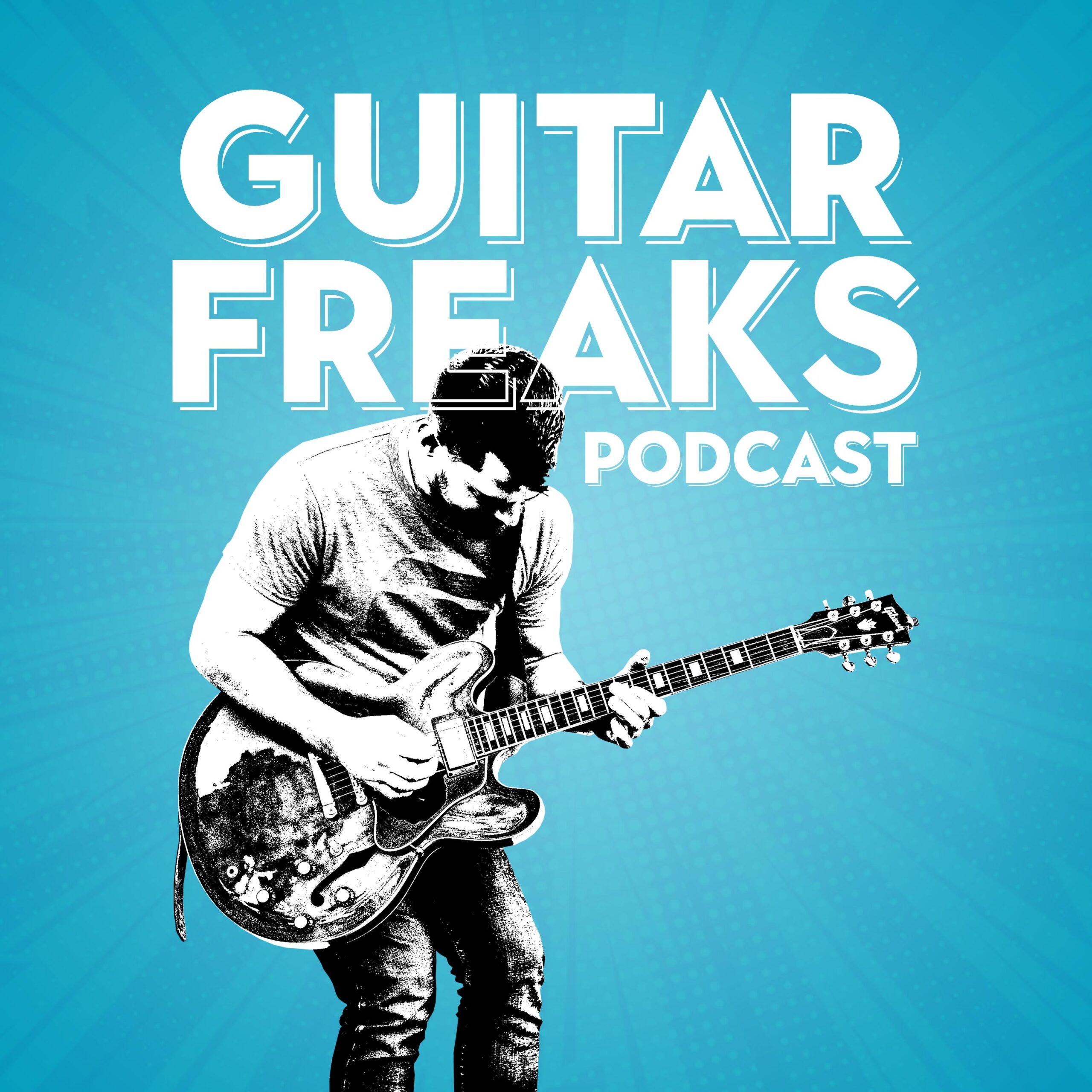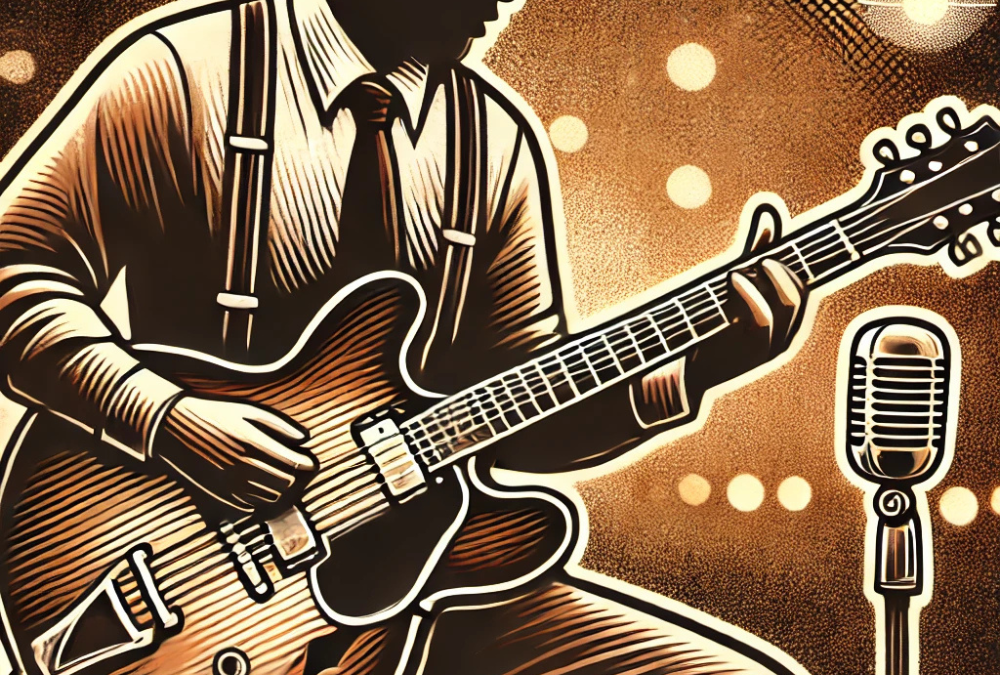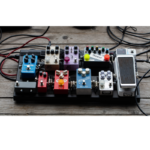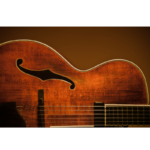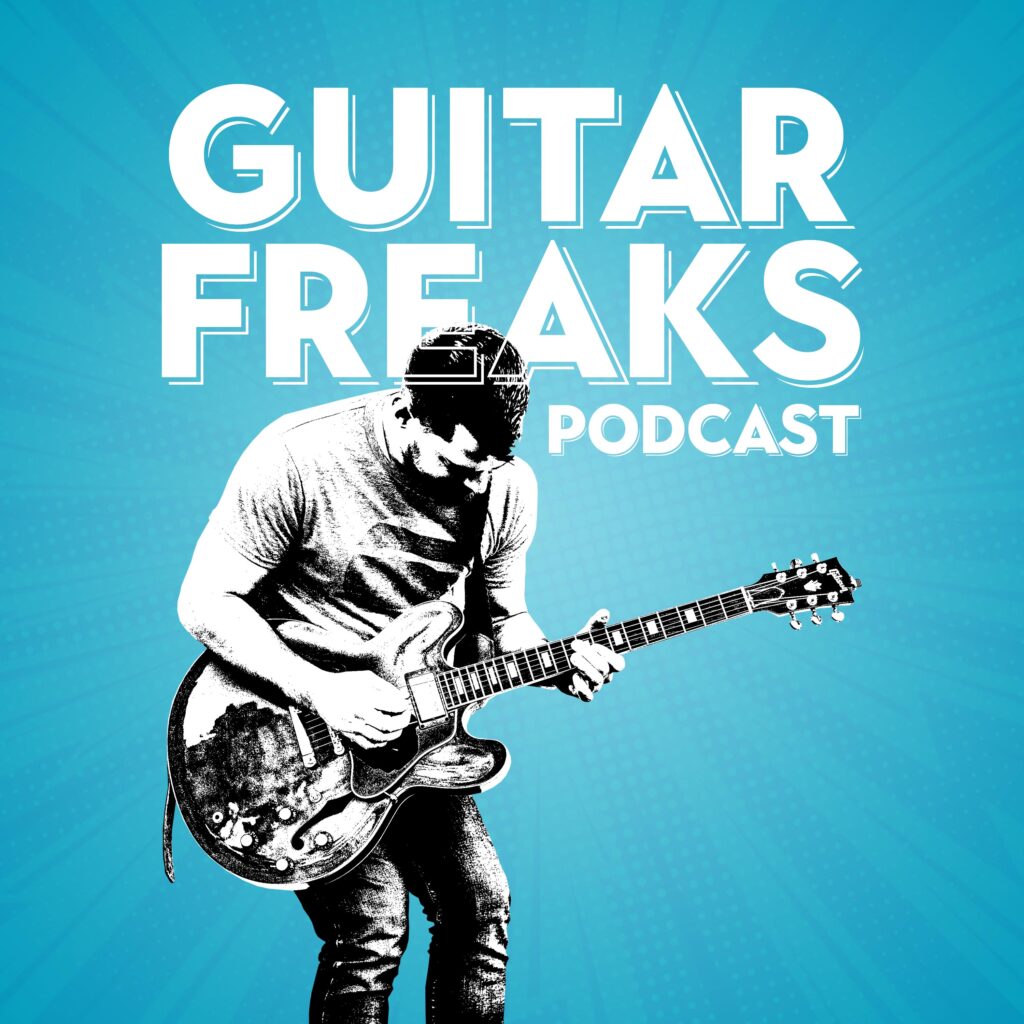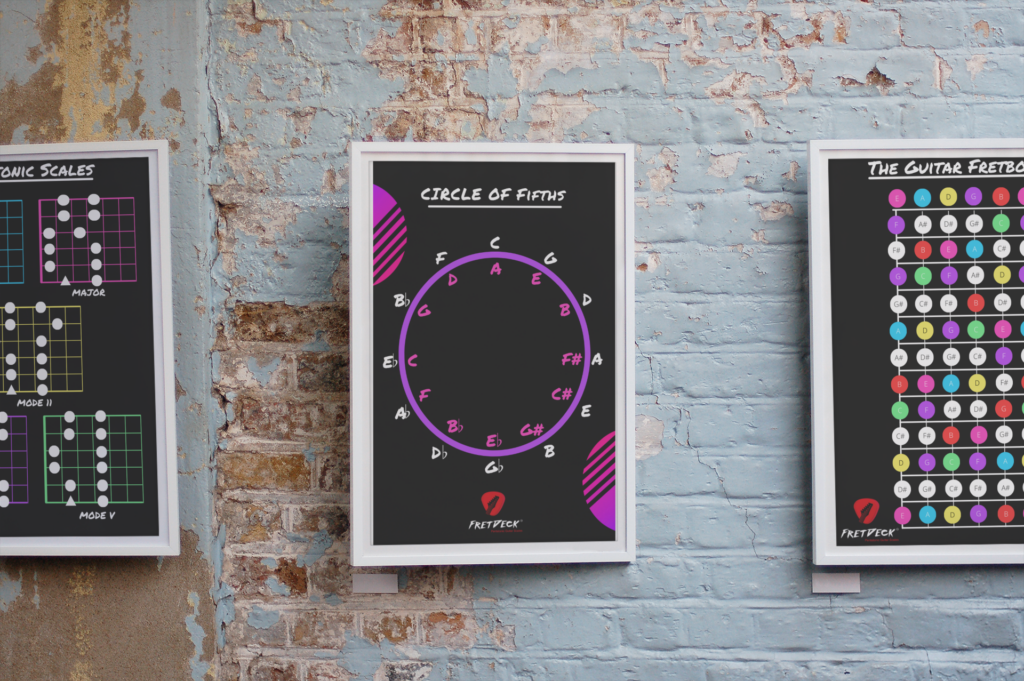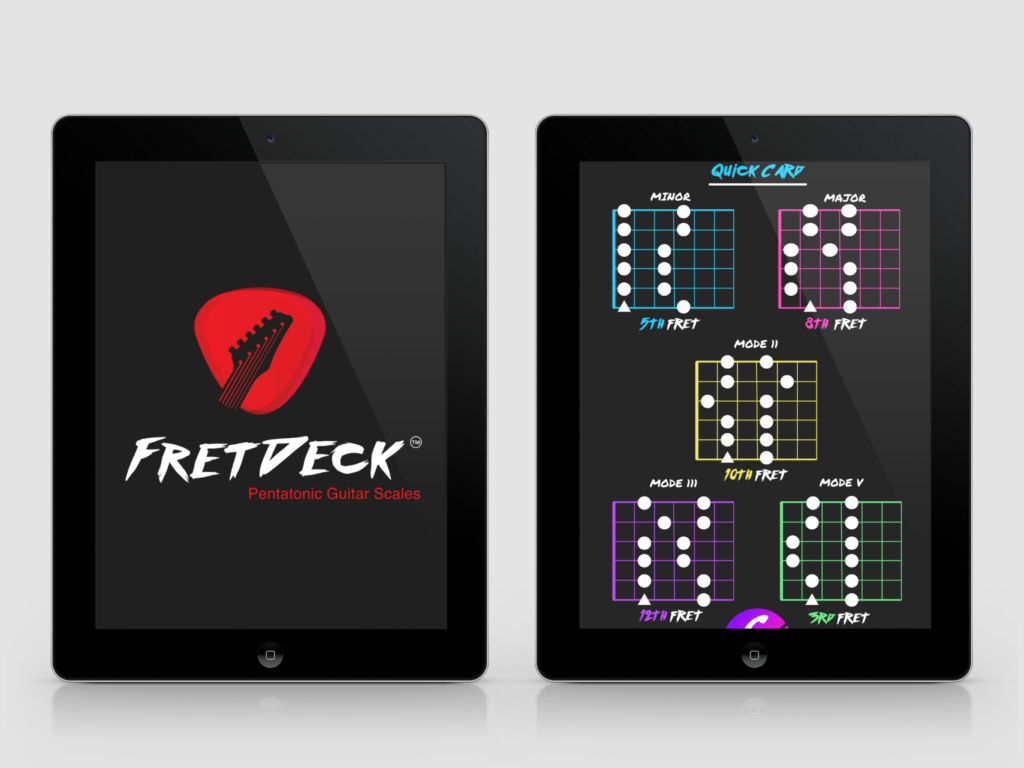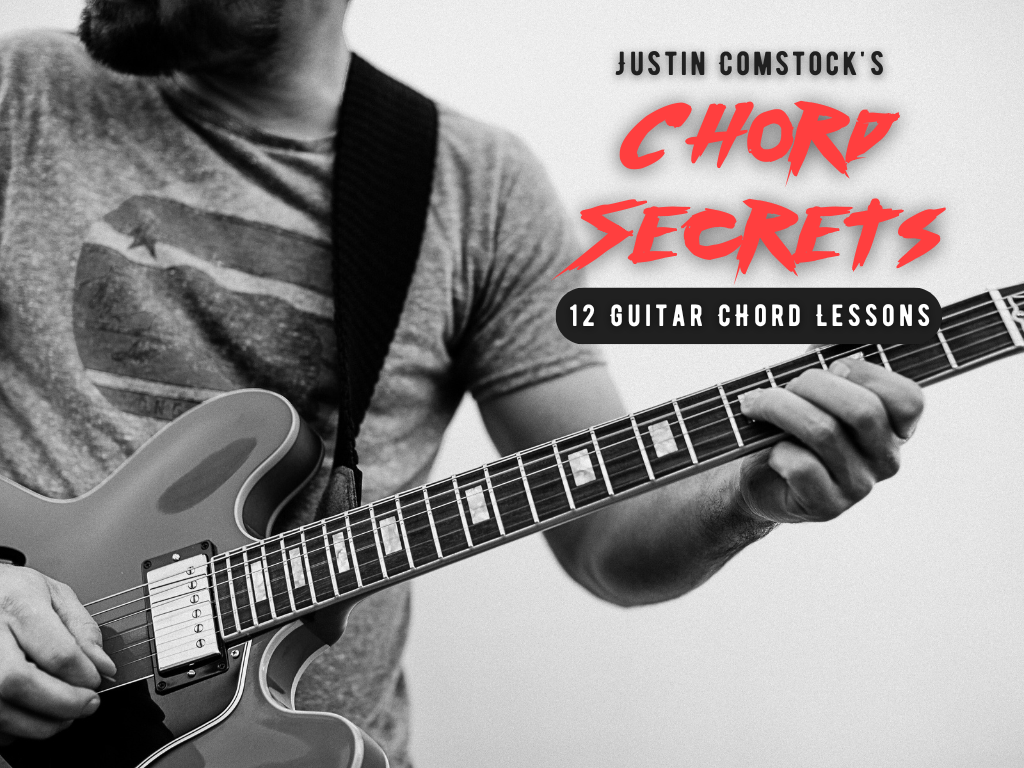Hey, guitar aficionado! 🎸
You might already have your major and minor chords down, but if you’re looking to level up, it’s time to explore jazz chords on guitar. Jazz chords add a whole new dimension to your playing, allowing you to express smoother, more sophisticated emotions in your music. Whether you’re into jazz, blues, or even pop, using major 7th, minor 7th, and dominant 7th chords can completely transform your sound.
In this post, I’ll show you why jazz chords on guitar are so powerful, how each type of 7th chord creates a unique feel, and when to use them to take your playing from good to incredible. By the end, you’ll see why these jazz chords are essential for any guitarist looking to explore more complex and soulful sounds.
Why Jazz Chords on Guitar Change Everything
Jazz chords on guitar are more than just extra notes; they’re a gateway to expressive, nuanced playing. Traditional major and minor chords provide the foundation, but jazz chords—especially 7th chords—add color and emotional depth that make music richer. Whether you’re playing a gentle pop tune, a soulful blues riff, or diving into jazz standards, jazz chords on guitar allow you to communicate a wider range of feelings.
So, let’s break down how each of these jazz chords can enhance your playing.
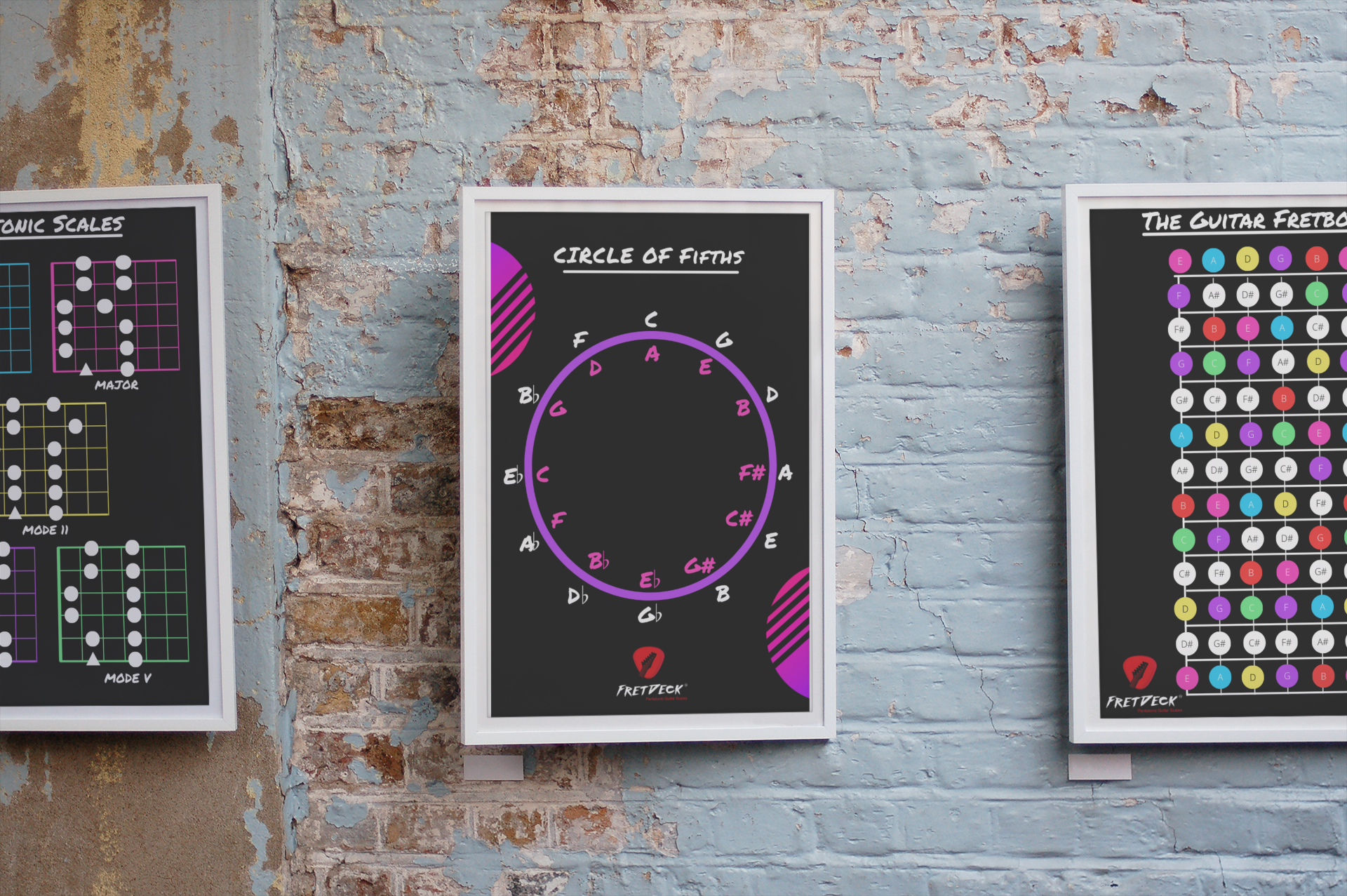
Download FREE Guitar Charts!
We have 27 FREE guitar charts to help you learn the guitar fretboard. Learn How to play chords and scales with these free resources.
Free Guitar Resources
Major 7th Chords: Smooth and Sophisticated
Major 7th chords are some of the smoothest-sounding jazz chords on guitar. Think of them as the chord that adds a gentle, sophisticated vibe to any song. These chords feel at home in jazz clubs but can also transform a rock ballad or pop tune into something more reflective and refined.
Major 7th chords add a layer of warmth that’s perfect for songs about love, longing, or contemplation. When you swap a standard major chord for a major 7th, it’s like taking the song from black and white to full color. You’ll often hear them in jazz standards, of course, but they’re also common in pop songs that aim for a relaxed, dreamy sound.
How to Use Major 7th Jazz Chords on Guitar
Try substituting a major 7th chord for any standard major chord in a song. For instance, instead of a G major, try a Gmaj7 and notice how it smooths out the sound. In ballads or any song with a slower tempo, major 7th chords create a gentle ambiance that can really make a song feel more heartfelt. Adding a jazz chord like a major 7th is an easy way to give any progression a sophisticated touch.
Minor 7th Chords: Adding Depth and Soul
If major 7ths bring out the smoothness, minor 7th chords bring out the soul. These chords are a staple in jazz, R&B, and blues, making them some of the most emotional jazz chords on guitar. Imagine the smoky sound of a jazz lounge or a soulful blues ballad—minor 7ths are the backbone of those styles.
Adding a minor 7th chord to a song brings a softer, more introspective quality that can instantly change the mood of your playing. Think about artists like Bill Withers or Amy Winehouse, who use minor 7th chords to add that raw, intimate feel. It’s a chord that tells a story, perfect for a laid-back groove or a reflective moment in a song.
When to Use Minor 7th Jazz Chords on Guitar
Any time you see a minor chord, consider trying it as a minor 7th. You’ll be surprised at the warmth it adds. For example, changing Am to Am7 gives you a softer, more soulful sound that can deepen the emotional impact of a song. Minor 7th chords are some of the most versatile jazz chords on guitar, perfect for creating rich, resonant backgrounds in any genre.
Dominant 7th Chords: Bluesy and Bold
Let’s talk about dominant 7th chords, one of the most recognizable jazz chords. Dominant 7ths have a gritty, bluesy quality that brings out a bit of tension in your playing, making them ideal for blues and rock. They’re not as smooth as major 7ths or as introspective as minor 7ths—instead, dominant 7ths add an edge that gives your music momentum.
If you’re playing a 12-bar blues, for instance, you’ll find dominant 7th chords everywhere. The classic E7–A7–B7 progression is a blues standard and works well for jamming or adding some gritty, soulful tension to your playing. Dominant 7th chords are like the “leading” chord—they create a sense of anticipation and demand resolution.
How to Use Dominant 7th Jazz Chords on Guitar
When you want to add energy or grit, dominant 7ths are your go-to. If you’re moving from a G chord to a C chord, try using a G7 instead. It adds a slight “pull” that makes the change feel more dynamic. Dominant 7ths are a classic jazz chord on guitar that works across genres, especially when you want to hint at a bluesy feel.
Combining Jazz Chords on Guitar for Unique Progressions
Now that we’ve looked at each type of 7th chord, let’s talk about combining them. When you mix major 7ths, minor 7ths, and dominant 7ths, you’re creating a rich tapestry of sound that’s quintessentially jazz. These jazz chords on guitar are often found together in popular progressions that define genres like jazz, blues, and even some pop.
Here are a few progressions to try that show off the power of jazz chords on guitar:
- The Jazz Standard (ii-V-I)
- Progression: Dm7 – G7 – Cmaj7
- This progression is the cornerstone of jazz, using minor 7th, dominant 7th, and major 7th chords to create smooth, satisfying resolutions. You’ll find this progression in countless jazz tunes, and it’s a great way to practice moving through different jazz chords on guitar.
- Blues Progression (I7-IV7-V7)
- Progression: E7 – A7 – B7
- This 12-bar blues structure is one of the most iconic uses of dominant 7th chords. Here, dominant 7ths give that gritty, bluesy edge that defines the genre. If you’re new to blues, this is a fantastic way to get comfortable with using dominant jazz chords on guitar.
- Pop-Soul (I – IVmaj7 – vi7 – V7)
- Progression: C – Fmaj7 – Am7 – G7
- This progression borrows from jazz and works beautifully in soulful pop. The Fmaj7 adds warmth, Am7 gives a touch of introspection, and G7 pulls everything back home. It’s a perfect way to use jazz chords on guitar to add emotional depth to pop songs.
Mastering Jazz Chords on Guitar
Getting comfortable with jazz chords on guitar might feel challenging at first, but with practice, these chords become second nature. Start by subbing in one or two 7th chords into progressions you already know. Try replacing a standard major or minor chord with its 7th chord counterpart, and listen to how the sound changes.
Jazz chords on guitar offer endless ways to express yourself, from smooth and soulful sounds to bold, bluesy textures. Don’t be afraid to experiment—try adding these chords into songs, or even use them when jamming with friends. You’ll find that jazz chords bring a sophistication and character that’s hard to beat.
So, are you ready to add some jazz chords to your repertoire?
Want to take it further? Join the Guitar Freaks Hangout on Discord and connect with a community of guitar lovers exploring jazz chords on guitar and beyond. It’s a great place to share tips, learn new techniques, and get inspired!

Download FREE Guitar Charts!
We have 27 FREE guitar charts to help you learn the guitar fretboard. Learn How to play chords and scales with these free resources.
Free Guitar Resources
